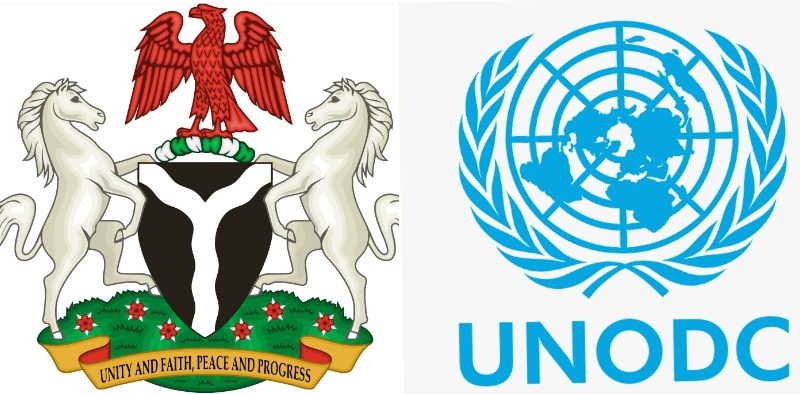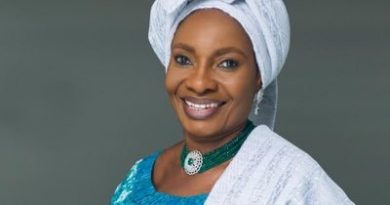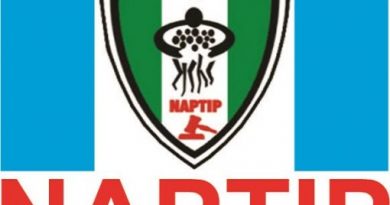FGN Launches the National Drug Control Master Plan 2021-2025
Oru Leonard
The Government of Nigeria on Monday, launched the National Drug Control Master Plan (NDCMP), 2021-2025. The event was attended by several cabinet ministers, members of the Inter-Ministerial Committee on Drug Control, NDLEA Chairman’s Special Purpose Committee on Drugs, the diplomatic corps, as well as diverse group of stakeholders.
Developed with the support of the European Union funded, and UNODC implemented project “Response to Drugs and Related Organized Crime in Nigeria”, the NDCMP 2021-2025 is the final product of a coordinated effort comprising experts from relevant government ministries, departments and agencies as well as civil society organizations. The Plan marks a significant evolution from the previous three NDCMPs, as it was able to draw on an extensive evidence base, including the first ever National Drug Use Survey conducted by the National Bureau of Statistics with the support of UNODC in 2018. The survey revealed an average drug use prevalence of more than 14% which is alarmingly high when compared with the global prevalence of 5.5%.
The survey also found that almost 3 million persons in Nigeria were suffering from some form of drug use disorder. Other research studies on prevalence of drug use among internally displaced persons (IDPs), migrants, students, out of school children, and women, also helped in shaping critical interventions for the Plan.
In his remarks, the Special Guest of Honour HAGF & Minister of Justice, Abubakar Malami, SAN highlighted the critical importance of NDCMP 2021-2025 in providing a clear roadmap for implementing country strategies on all aspects of drug control. The Minister of Women Affairs expressed her concerns about one in four drug users being a woman or a girl and hoped that gender concerns would be adequately addressed during implementation of the Plan. The Minister of Youth and Sports Development proposed to engage National Youth Service Corp ( NYSC), in drug prevention and sensitization work.
Speaking on the occasion, Mr. Alexandre Borges Gomes, Charge d Affaires, EU Delegation to Nigeria and ECOWAS, stated that “a balanced approach to issues of drug control” containing both soft and hard measures is the most viable way forward and commended Nigeria for developing such a Plan.
Quoting different research studies conducted on drugs in Nigeria, including the Drug use Survey 2018, the UNODC Representative in Nigeria, Mr. Oliver Stolpe stressed on the strong evidence-base available for the development of this Plan, “an opportunity, that was not available at the time of development of previous three plans … hence NDCMP 2021-2025 would create superior impact”
Representing Chairman NDLEA Brig. Gen. Mohamed Buba Marwa (Rtd), Secretary of NDLEA, Mr. Shadrach Haruna expressed his agency’s resolve in implementing the NDCMP in close coordination with all the concerned ministries, agencies and departments. He further thanked the European Union for gracious funding and the UNODC for providing technical and advisory support through all stages.
The development of the NDCMP 2021-2025, its endorsement by the President of Nigeria, and its launch today, are significant milestones in Nigeria’s progress towards addressing drug control issues in a more focused, systematic and evidence-based fashion.
The plan marks a significant shift away from an approach predominantly aimed at supply reduction to a more balanced and health-centred approach to drug control. The recent initiatives on restructuring of the NDLEA directorates and the upgrading of the Narcotics and Drug Abuse Unit within the Federal Ministry of Health (FMOH) to a full-fledged Division, are also important reflections of this shift in the priority setting of the country’s drug control effort.
The implementation of NDCMP 2021-2025 will contribute to achieving Sustainable Development Goal (SDG)-3 to “ensure healthy lives and promote well-being for all at all ages” and target 3.5 to “strengthen prevention and treatment of substance abuse, including narcotic drug abuse and harmful use of alcohol, as well as SDG-16 to “promote just, peaceful and inclusive societies.”
(UNODC Media)




